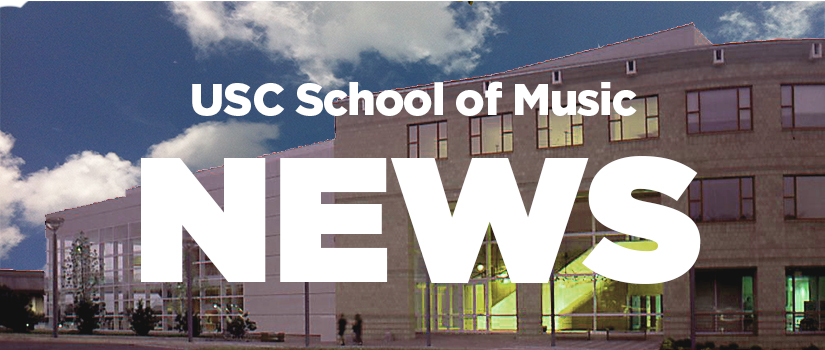Guest tenor and nearly 400 performers take to the stage for the rare event
Near the end of his life the French composer Hector Berlioz wrote that if all of his works were to be burned except one, “it would be for the Messe des morts that I would beg mercy.”
The Berlioz Requiem (Grand Messe des morts) is a monumental work that calls for a huge orchestra – about twice the size of a standard group – a massive choir and a tenor soloist. Nearly 400 performers will take to the stage for this rare event, only the second time it has been performed in Columbia since the university presented it in 1991. A music critic at The State newspaper called that performance riveting, captivating and inspiring.
Students from the University of South Carolina’s top tier orchestral, band and choral ensembles combine in this immense year-end finale with guest artist tenor Christian Šebek.
The last USC Symphony Orchestra concert of the season takes place on Tuesday, April 21 at 7:30 p.m. at the Koger Center for the Arts in Columbia, S.C. A pre-concert lecture takes place at 6:45 p.m. in the Koger’s Large Rehearsal Room. Valet parking is available.
The USC Concert Choir directed Larry Wyatt, University Chorus directed by Alicia Walker, and the Coker Singers, directed by Dustin Ousley, join the USC Symphony Orchestra. Donald Portnoy, director of orchestral studies at USC and recipient of the 2015 Elizabeth O’Neil Verner Award, directs the orchestra.
Guest artist Christian Šebek, currently performing on Broadway in Phantom of the Opera as Ubaldo Piangi, is recognized for his powerful and lyric spinto, being able to handle large musical climaxes and changes with a voice that can be pushed to achieve dramatic heights. The New York Times praised Šebek as “possessing a marvelous voice,” and the Houston Chronicle extolled his singing as “full of visceral excitement.”
The Requiem had originally been a government commission for a ceremonial occasion to commemorate the July 1835 deaths of the former war minister, 40 members of the national guard, and to honor those killed in the 1830 Second French Revolution. Political intrigues, however, delayed an actual written order for the commission, largely because some government officials backed the more traditional composer Cherubini; but Berlioz was becoming known for his patriotic scores, and that may have helped him gain the commission in the end.
The successful premiere performance in 1837 took place in Paris’ Invalides Cathedral, and Berlioz planned sound, silence, and distribution of instrumental forces to work specifically in that vast space – something he called “architectural” music.
“Armed with my order,” wrote Berlioz in his Memoirs, “I fell upon [the coveted text] with a kind of fury. My brain felt as if it would explode with the pressure of ideas. The outline of one piece was barely sketched before the next formed itself in my mind. I could not write fast enough….”
The monumental Grande Messe des Morts, one of Berlioz's best-known works, is a fitting wrap for the university's top tier ensembles.
Tickets are on sale now
$30 general public; $25 senior citizens, USC faculty and staff; $8 students. Capitol Tickets 803-251-2222, capitoltickets.com or Koger Box Office, corner of Greene and Park Streets.
